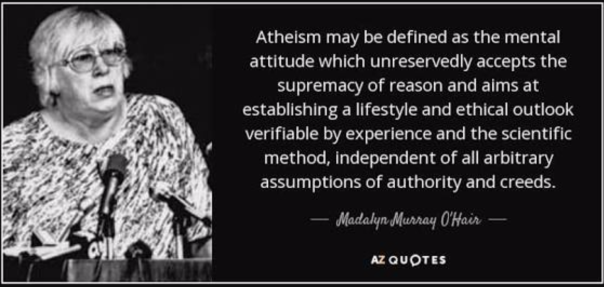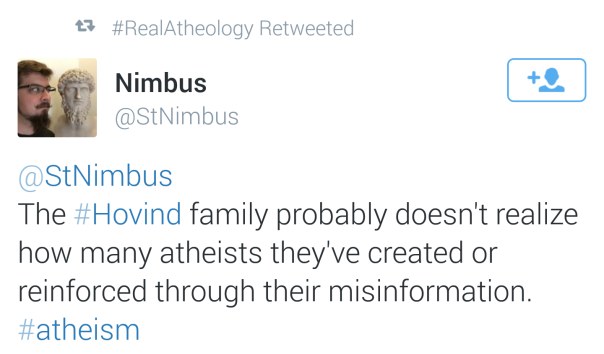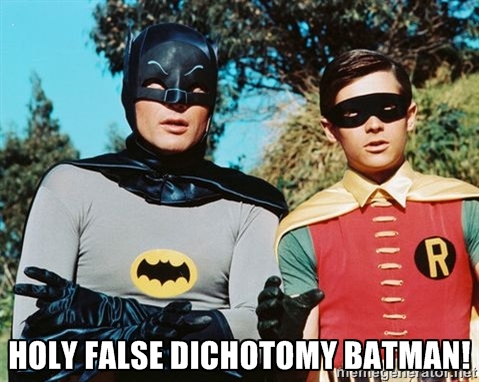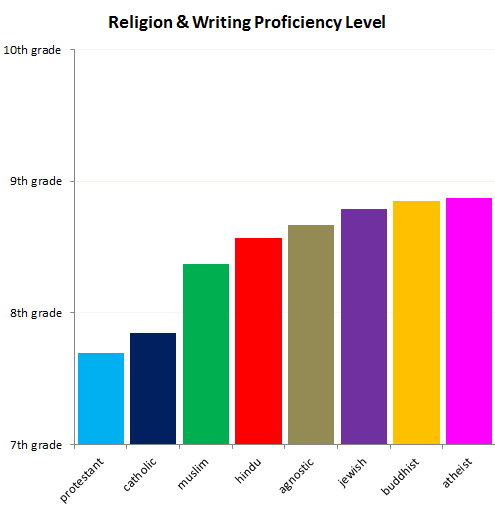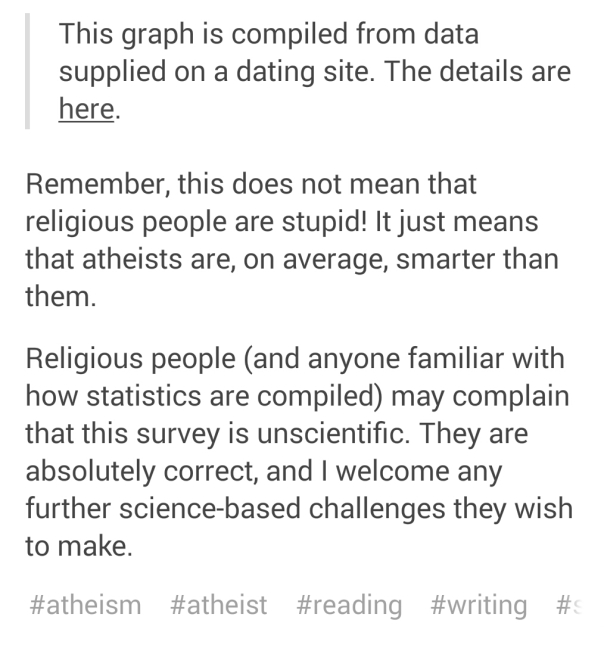Blog Archives
Dr Axe and a Misguided Fear of Pigs
Growing up Adventist meant that pig meat was taboo. Like Muslims and Jews, Seventh Day Adventists believe that God’s dietary instructions to Moses in the Old Testament are still valid today. Many even try to claim that there is not just a spiritual, but a scientific basis for these claims. After all, God knows best and why wouldn’t science acknowledge that? An article that Adventists share every now and then is a piece written by Dr Axe titled, “Why You Should Avoid Eating Pork”, which I’ve seen doing the rounds lately. Now if you’re expecting a Dr to provide some scientific basis for his claims, please prepare to be disappointed. Unfortunately Dr Axe even struggles with basics, like citing scientific sources for his claims. At best he has demonstrated his ignorance of basic academic work, at worst he is being wilfully misleading and lying. But nonetheless, as it fits their view, their are plenty of Adventists willing to share this article without a decent application of skepticism.
After seeing the articles a few times, I had to have a look. I have quoted and responded to some of the claims made with in the article below.
“The Center for Disease Control and Prevention (CDC) states that more than 100 viruses come to the United States each year from China through pigs.”
See if you can find evidence for this statement anywhere on the CDC website or in any CDC publication. The author does not link to any of this information, which is odd since it wouldn’t have been a hard thing to do. My guess is the CDC have never said this and Dr Axe has either exaggerated something said on the CDC site or just openly lied. The takeaway point is if you are going to claim the CDC said something, simply show us where they said it.
“Of course, you’re probably familiar with H1N1, better known as ‘the swine flu. This too is a virus that has made the leap from pig to human.”
This is true, pigs can transmit swine flu to humans. However you cannot get Swine Flu from eating pork. The transmission of Swine Flu was originally from people in contact with live pigs and then the virus got passed from human to human. Now if you are avoiding pork due to spiritual guidance from the bible, here’s something to think about. The same dietary guidelines that disallow pork consumption in the bible, also allow for poultry consumption. The Avian Flu is transmittable from chickens to humans, but you’d be hard pressed to find an Adventist, Jew or Muslim sharing any fear mongering article about chicken consumption. So if you are buying Dr Axe’s fear mongering on contracting Swine Flu from pork meat, you better also check your chicken consumption for fear of contracting Avian Flu. But my bet is you won’t be doing that.
“Did you know that pigs carry a variety of parasites in their bodies and meat? Some of these parasites are difficult to kill even when cooking. This is the reason there are so many warnings out there about eating undercooked pork.”
Actually it’s incredibly easy to kill these parasites when cooking them, unless of course you have a very poor knowledge of how to cook meat. As for the amount of warnings out there about eating undercooked pork, again this is an odd singling out of pork. The same warnings can be found for chicken and seafood, to prevent people being harmed by Salmonella or Botulisms. Warnings about the storage and cooking of chicken or seafood are not somehow a sign that you should avoid eating either of these meats, so neither should it apply to pork without good reason. What the warnings tell us is that we should properly store and cook these meats, which in shouldn’t be a hassle in the 21st century.
“One of the biggest concerns with eating pork meat is trichinellosis or trichinosis.”
If you are concerned about Trichinellosis or Trichinosis, just consider the following statement from the CDC referring to this: “During 2008–2010, 20 cases were reported per year on average. The number of cases decreased beginning in the mid-20th century because of legislation prohibiting the feeding of raw-meat garbage to hogs, commercial and home freezing of pork, and the public awareness of the danger of eating raw or undercooked pork products. Cases are less commonly associated with pork products and more often associated with eating raw or undercooked wild game meats.” So the biggest concern Dr Axe gives us for eating pork centres around 20 cases between 2008-2010, which could have been prevented if people didn’t eat raw or undercooked game meats. I’m happy to be proven wrong here with more current statistics, but for now it seems that Dr Axe is fearing pork consumption, as if the majority of that consumption comes from undercooked game meat. I don’t think this reflects the way pork is largely consumed. So maybe his article should be more accurately titled, “Why You Should Avoid Eating Undercooked Wild Pig”. Not as catchy huh?
“I don’t know about you, but I don’t feel good about eating anything that I first have to kill off its worms to eat.”
If its the ick factor that stops the author, then he needs to consider that the CDC also gives instructions on how to cook poultry to prevent trichinellosis. So he might want to consider not eating chicken either, since it could contain worms that get killed during the cooking process.
“Pigs are primary carriers of:
-Taenia solium tapeworm
-Hepatitis E virus (HEV)
-PRRS (Porcine Reproductive and Respiratory Syndrome)
-Nipah virus”
Regarding Taenia solium tapeworm. According to the CDC :“Humans can become infected with these tapeworms by eating raw or undercooked beef (T. saginata) or pork (T. solium and T. asiatica).” If you’re Adventist, consider that bible’s dietary guidelines don’t mention a problem with beef, so what does this prove about pork’s uncleanliness? Nothing that can’t be also applied to another ‘clean’ meat ie beef.
Regarding HEV, according to the CDC: “Hepatitis E virus is usually spread by the fecal-oral route. The most common source of infection is fecally contaminated drinking water. In developed countries sporadic outbreaks have occurred following consumption of uncooked/undercooked pork or deer meat. Consumption of shellfish was a risk factor in a recently described outbreak.” So again, unless you are consuming undercooked or uncooked pork, you should be fine.
Regarding PRRS (Porcine Reproductive and Respiratory Syndrome), though it is most definitely possible for pigs to contract it, there seems to be no good evidence to suggest that PRRS can be passed on to humans.
Regarding the Nipah virus. Yes it can be passed on to humans from close contact with pigs. Outbreaks have also occurred from people eating raw date palm sap infected by bats. But no suggestion that eating pork that has been stored and prepared properly, will do this for you.
Regarding Menangle virus. Again, can be passed to humans from close contact to pigs. But there is no evidence to suggest eating pork will do this. In fact there doesn’t seem to be the same amount of literature on this virus as the others mentioned.
So all in all, a good example of fear mongering within health. Dr Axe has relied on cherrypicking facts. For some bizzare reason trying to twist those facts to make it seem like consuming pig meat is bad for your health. It seems the only way it could be bad for your health is via overconsumption and eating raw or undercooked meat, especially game meat. All of which doesn’t make me think we need to be avoiding pork.
New Atheism and The Ex Adventist Status Quo: A Dying Trend?
Correction: I have been informed by a member of the SDA Fight Club that Ryan Bell no longer admins the group. A shame, as he would have been a great influence.
Recently, I had the chance to reflect with other Ex Adventists on the state of the Ex Adventist community. We mainly talked about the online groups we’ve been part of over the years and the dynamics within them. Amongst other things, we had noticed that they were quieter than usual and this seemed to be getting worse. In most groups, if new members were trickling in, it was at a markedly slower pace than usual. In discussing possible reasons for this change, it seemed likely that in-fighting, which often mirrored the church environments we all came from, played a role. There were petty power struggles, casual sexism and misogyny, racism and favoritism doled out by admins. When these issues were dealt with, it was often tokenly so, with admins rushing to move people along rather than get to the root of the issue. In fact sometimes the only reason you’d see an admin is if they came on to defend their admin style or as back up for another toxic member. Noticeably it was also often the same people running the show from group to group. If admins involved in a lax or dismissive approach to social issues stepped down, they were replaced by people just like them. People who just continued to maintain the status quo. Mirroring the complaints made about New Atheism being a white male and middle class environment, these groups seem to be predominantly old white middle class men, arguing about atheism. There seems to be little room for discussion on race, gender and social issues that weren’t directly linked to antitheism. People under thirty are virtually non-existent, having either joined only to drop out or go quiet. An interesting parallel to the Seventh-day Adventist Church and it’s problems with retaining younger members. Mind you there are exceptions to this rule, but they don’t come without a struggle.
In part it seems that many members, in particular PoC, had left or become quieter in a few of the larger groups, after tone policing and a dismissive attitudes towards complaints about racism, compounded with the other issues mentioned. Some left or went quiet, having noticed that the groups usually feature fundamentalist atheists pitting themselves against fundamentalist theists. A merry go round of fundamentalist vs fundamentalist, achieving little but to reinforce each others views of the other. As for the few younger people who had briefly been part of the Ex Adventist groups, the ones I had talked to left or went quiet because of the toxic environment or the repetitiveness of the topics. In reflecting on these dynamics I wondered if there was still more to it? Maybe these dynamics and changes reflect a wider issue within atheist communities. Maybe they were even a reflection of issues in the wider world. Is it a surprise that perspectives of white middle class men prevailed in these groups? If you’re paying attention to the wider world, then this seems like a continuation of a larger problem.
So in these groups often what is often offered to members is a place to push back against religion in a way that is heavily influenced by New Atheism and its rhetoric. Interestingly in the wider world it seems that New Atheism is steadily coming under fire as its proponents take successively extreme stances on religion and religious people. Also managing to committing a range of gaffes on important issues like misogyny, sexism and racism. Social media hasn’t helped them, becoming a way to demonstrate in real time that being learned in their respective fields, does little for their understanding of wide ranging social issues that effect the most marginalized groups. Hardly surprising given the dominance of old white middle class men representing New Atheism. Peter Bogohossian, Richard Dawkins, Sam Harris and Lawrence Krauss; hardly the poster boys for diversity. But criticisms of the New Atheists had plagued them from the start.
The tide really seemed to turn on the New Atheists, when people from within the atheist community were doing the criticizing and the New Atheists couldn’t blame religion for this opposition. Instead they were left to claim their critics were overly sensitive PC types. Branding them as the regressive, ironically mirroring the right wing fundamentalists they often opposed. Interestingly a dynamic mirrored in Ex Adventist groups, where those concerned about social issues being poorly addressed have been branded as sensitive Social Justice Warriors.
The New Atheists also demonstrated their lack of philosophical prowess, which won them not just criticism from philosophically proficient theists, but again from people within the atheist community. People like Massimo Pigliucci, did not go easy in their criticisms of the New Atheist floundering attempts to engage in philosophy or in some cases, to openly dismiss philosophy. The anti-intellectual elements of the New Atheist movement were being exposed.
As a result of these issues, there seems to be a major shift occurring, with fresh new faces like former Adventist Pastor Ryan Bell, presenting a more dynamic and relevant approach to addressing the pertinent issues of our time. One in which social issues are not set aside in favour of antitheism. His involvement in Ex Adventist groups focused on antitheism, such as SDA Fight Club where he is as an admin, being so minimal as to go virtually unnoticed. Instead making his mark by using his platform to address the nuances of religious experiences, ex religious experiences and social justice issues. To be fair, he certainly isn’t the first atheist to do this. With many of the atheists who criticize the New Atheists, pointing out that we have a long tradition of atheists involved in social justice from a secular perspective.
So coming back to the growing quiet in Ex Adventist groups. Could the quietness in the groups be in part the politics, but also a reflection of the increasing irrelevance of the fundamentalist atheist positions on religion? Could the quietness be a result of shunning diversity in favour of maintaining the status quo of the white middle class perspective? Maybe people within and without the atheist community are increasingly looking for something that better addresses social issues. Something more than lazily pinning the ills of the world on religion. If the slowing numbers and defections from antitheistic Ex Adventist groups continue, will they become a thing of the past? Will this reflect a wider decline New Atheism? It’s something worth thinking about as atheists. I hope we can look back on a time when the perspectives of the old white men of New Atheism aren’t reflected so heavily in Ex Adventist groups. Where PoC are in positions of influence, rather than just privileged white people. Where social issues that plague our society are given more attention and fighting over religion, less. Maybe one of our commitments for this year could be to focus more of our attention to spaces where social issues are addressed. Where admins reflect diversity not the status quo. Where the same faces don’t keep turning up to maintain the same dynamics. A year where we take our time and effort elsewhere. Leaving groups dominated by old white middle class men, to finally become echo chambers of the past.
Feigning Innocence When Offending Muslims
Having begun my journey into atheism with the works of New Atheists like Sam Harris, I am accustomed to the idea that we should be able to criticize and make fun of religion. Initially I embraced this heavily and ran my own atheist humour page, where we often purposely posted things we knew would cause offense. However what I never wanted to do, was post something that encouraged bigotry or persecution.
Recently Sam Harris tried to run a series of ads promoting his tour, which contained this quote:
Naturally many atheists sided with him and claimed free speech had been thwarted. But of course by claiming this, you’d have to ignore the current atmosphere in Australia. Australia has recently seen a spate of anti-Muslim rhetoric and rallies, which are often the work of thinly veiled anti-immigration and racist groups like the United Patriots Front. When Harris decides that this quote is going to be used to advertise in a Australia, does he feign ignorance at the potential to stoke the anti-Muslim sentiment here? Does he think about what that entails for Australian Muslims, who have experienced threats, harassment and assault due to anti-Muslim sentiments?
Imagine for a second you are Muslim and you see this. Offense is not the main issue, it is a red herring. Fear is the main issue and a justified fear at that. You’d have to wonder if this billboard will add fuel to the fire of bigotry Muslims face, which at worst could mean being subjected to a range of bigoted actions, including violence. Meanwhile your atheist peers ignore your experiences in favour of wanting to claim free speech is being subverted by offense.
Now I’m not opposed to Sam’s right to offend, but rather how he has ignored the plight of Muslims in Australia and valued the right to offend over this. Often atheists like to claim we should be able to offend the religious without fear of reprisal. I agree. But if I’m going to say I want the right to be able to do this and not fear persecution and violence, why would I then ignore the plight of Muslims who have to fear exactly this, because people like Harris carelessly contribute to anti-Muslim sentiment? Yes I know he isn’t encouraging attacks on people, but instead an attack on their faith and holy texts. However you’d be assuming a far too rational line of thinking from the kinds of people who attack Muslims, if you said this kind of rhetoric and attacks against Muslims aren’t linked. In a perfect world, sure. But in a country where bigotry against Muslims is a reality, I think this kind of message is not helpful. It just contributes to a serious problem and provides little in the way of a substantial critique. In fact we can still provide worthy criticism of the Quran, but a billboard, where brevity is ensured, may not be the place for it. Then again, if getting attention is the goal then maybe that is exactly the place for it in a country with a lively anti Muslim sentiment.
I’ve written before about how tone deaf old white men can be within the atheist community and Harris is unfortunately one of them. I sincerely doubt he didn’t know the impact a quote like this would have in Australia. I think it is more likely that Harris knows the impact of what he’d proposed and banked on the controversy, as a way to promote his work. I can see how, as a strategy to gain attention, it has worked, but I can’t agree with it at the cost of the wellbeing of Muslims.
A Naive Approach to Deconversion
In describing my own deconversion it is difficult to fully capture what that experience was like. Having been heavily influenced by New Atheism in the latter part of my deconversion, I think I was influenced to put a spin on my deconversion that doesn’t do it justice. The narrative often pushed in those circles is that deconversion is largely just a matter of reason and science. That skilling people up on these things acts as an antidote to religion. New Atheists are fond of providing, often poor, psychological and sociological reasons for someone maintaining or gaining religious belief. But when it comes to describing someone’s exit from religion, they provide a particularly impoverished narrative in which cold hard reason gets the bulk, if not all, the credit.
I think this is a naïve approach to explaining what is required for someone to deconvert. If we are to say a network of factors impacts someone’s belief while they are religious, why would that same network of factors cease to exist or become impoverished as they deconvert? It doesn’t seem likely that their decisions would not be impacted by personal history, experiences, relationships, access to information, cognitive capacity and a range of other things that were present during their religious life. It is overly idealistic to pretend that as someone becomes an atheist or agnostic they shed themselves of these things and become a bastion of reason. Of course they could learn to reason in better ways, but would still be operating within the same network of factors as they did in their former life.
As a quick example, I think of what changed my beliefs about homosexuality being a sin and the other negative beliefs I held about the LGBT community. Was it mainly reasoning that won through? Not really. I had limited exposure to LGBT people at a young age, but as I got older, went to university and work, I would have had to have my head in the sand to not meet someone who was LGBT. In doing so I got to interact with LGBT folk in ways that dropped my defenses and made it harder and harder to believe the things I was taught. I was also losing my faith by drifting out of the church and so the ‘need’ to maintain them dwindled. I can’t say cold hard reason was the main factor here. Sure it played some part, but it was the sum of many factors that tipped the balance. It makes little sense to see a religious deconversion as something other than an experience that is rich and dependent on many factors.
In the case of the New Atheists it is understandable that they might present deconversion as a product of science and reason, as it fits with the image they sell. For me it was a bit of this, as I had bought into their ideas heavily, but maybe it was also an attempt to simplify something that was incredibly complex. What are your thoughts on your own deconversion? Were you sold by superior reasoning or do you acknowledge a range of factors which helped you deconvert?
Scoring Own Goals in the XSDA Community
Nothing keeps an atheist an atheist, like the work of fundamentalist Christians. Whether it’s Ken Ham, the Hovind family or the latest fundamentalist YouTube sensation, spewing fire and brimstone. Rather than be impressed by their reasoning and behaviour, we are reminded of the worst religion has to offer. Popular fundamentalist Christians produce material that becomes fodder for a slew of atheist memes and talking points for furthering the goals of antitheists. Instead of bringing in a swathe of atheist converts, the fundamentalist Christian ends up scoring own goals by keeping atheists away. In some cases it is the fundamentalist approach to religion that drives people out of the Church. For many former Adventists (XSDAs), like myself, this was the case.
On the flip side of this, fundamentalist atheists like Dawkins, Harris and Boghossian do the same for Christians. Their caricatures of faith are often met with laughter or exasperation from the faithful. Even atheists like myself find their postions to be poorly reasoned and frequently embarrassing. They resort to hype, fear mongering and many of the same trappings of the fundamentalist Christian. Unfortunately many XSDAs lap this up and as a result the XSDA community is dominated by this type of discourse.
New Atheism and it’s popularity in XSDA circles provided me with many reasons to abandon the antitheist push for the growth of atheism. I had bought into the idea that the world would be a better place without religion. But in reading the New Atheists woeful commentary on social issues and spending time exposed to the XSDA community, I was left wondering how this could be so. There had to be more to the picture than a world without faith and antitheism seemed like such an incoherent stance to take.
I found it difficult to see, on one hand, people waxing lyrical about the power of reason and then see these same people parroting New Atheist views with a lack of substance I had seen in the Adventist church. An example that stands out for me was trying to understand why some XSDAs thought mental illness and religous faith were inseparable. Rather than presenting a reasonable argument, they simply regurgitated New Atheist rhetoric. Their fundamentalist approach to religion and mental illness spoke of a mind still attached to the rigid thinking learned in the Adventist Church. It was just fundy in, fundy out. So rather than feeling drawn further into XSDA circles, I was feeling myself move onto to something else. An own goal had been scored, as I began to question whether the antitheism that dominated discourse made any sense.
If there’s a solution to scoring own goals, it lies in an approach that doesn’t fit so neatly into a label. We must present a more nuanced approach than the usual fundamentalist atheist fare. If you’re XSDA it’s tempting, due to your own experiences with fundmanetalism, to shallowly engage with religion. But in abandoning this approach in search of a more nuanced, informed postion we could also lose much of the Us vs Them mentality that is prevalent in XSDA circles. As an added bonus, we might even lose some of the toxicity too.
Antitheist Conspiracy Theory
Why indeed?! One reason that is should be a big one for you is that there’s no evidence to suggest this is the case.
As far as I can tell this claim borders on conspiracy theory. Where is the evidence that Judaism, Buddhism, Christianity and Islam, as just a few examples, were made to control people?
What do people who make this claim imagine occurred? A shadowy council of rulers getting together and thinking of ways to control the people they ruled over?
Another thing that should make you feel underwhelmed by this meme is how generalised the claim is. I can’t help but think of how meaningless it is. Imagine saying “political ideologies were made to control the masses man”. How? Specifics matter. If you find the statement about politics to be to broad to be meaningful then you’ll understand that it’s not more meaningful to say religions were made to control people. This kind of claim may sound good to antitheists, but for me it’s a conspiracy theory.
Fundy in, Fundy out: Us vs Them False Dichotomies
After leaving the Seventh-Day Adventist (SDA) church and ‘drifting’ for a while, I was introduced to the online ex-Adventist community. At the time I had no idea that there were spaces like this where ex-Adventists interacted. It felt good to know there were others who had gone through the same journey and seemed to be getting on with life. However, toxic behaviour aside, it didn’t take long for me to notice that these ex-Adventist spaces reminded me of many of the things I’d despised about the church. Despite the frequent protestations of having left behind the SDA world, we were still influenced by much of the same thinking and practises. There were the same Us vs Them False Dichotomies, the fearmongering and the tribalism. From the church to the ex-Adventist community, it was fundy in, fundy out.
Maybe I was a little naïve and because of this I was thoroughly surprised by what I’d found. When I raised this I was met with resistance and why wouldn’t it be? Who of us would want to admit that the church had left a mark on our mindset? But nevertheless this is to be expected for many of the people who spent years being conditioned within the SDA bubble.
Rather than experiencing a miracle shift in mindset after exiting the church, it seems more often than not, people fall headlong into yet another fundamentalist approach to religion. For many ex-Adventists, the rigid views espoused within the highly visible and somewhat popular world of New Atheism, provides a bridge from one fundamentalist world to another. The same style of rigid thinking, Us vs Them False Dichotomies, fearmongering and tribalism abound. However the content has changed enough that people can fool themselves into thinking they have left their fundamentalist ways behind. So the transition goes, from fundamentalist Christian to a fundamentalist atheist.
In this post I will discuss Us vs Them False Dichotomies, in particular Science vs Religion and True Christians vs Other Christians.
Us vs Them False Dichotomies
Science Vs Religion
When you believe that the earth and life on it are all around 6k years old, you are at odds with scientific facts across a variety of fields. In the church, one way of dealing with this was to paint the picture that it was either science or religion. You couldn’t have both to any significant degree without compromising the other. Adventists had to fight off the lies about evolution or be at risk of compromising their faith. Science was painted as a cold, souless endeavour where people did everything they could to ignore ‘facts’ about the world, such as God’s existence. As an Adventist, science was the enemy and religion was the great liberator, sent to rescue the world from scientist’s lies. Leaping forward to my time in the ex-Adventist community a reversal had occurred. Now science is presented as the great liberator, setting humanity on a course of progress that religion couldn’t. In fact science is fighting religion every step of the way. From this perspective religion is filled with lies and thankfully science is here to save the day. You of course can’t have the best of both worlds, as ex-Adventists seem to think that a person of faith who accepts science, does so at the cost of being a true Christian. Conversely the person who accepts science to it’s fullest cannot engage in religious belief without some cost to their study of science. The mirroring of the Adventist world is bizzarre, yet is it that surprising given where ex-Adventist minds were molded?
True Christian vs Other Christians
Adventists pride themselves on keeping the ‘true Sabbath’ and engaging in a ‘true study’ of the bible. Biblical inerrancy is championed along with strictly keeping the Sabbath as God intended (Saturday of course). True Christians take the creation account literally, the Flood literally, the Tower of Babel literally and so on. Of course any Christian who doesn’t do this is compromising their faith and doesn’t really represent Christianity. They are the wishy washy accommodationist types, heavily influenced by the progressive views of the world. They don’t have solid reasons for their worship and approach to the bible. Again jumping to the ex-Adventist community you find ex-Adventists parroting these same views. Christians who understand much of bible without a staunch literal approach, aren’t seen as being as representative of Christianity as adherents of their former faith. To echo Sam Harris, these are people whose faith has been shaped by the force of modern progressive values, rather than solid theology and reasoning. The Christians ex-Adventists seem most willing to accept as truly representative of Christianity, are bizzarrely those who most closely resemble their former selves.
Even atheists who aren’t as hard line about their views as the ex-Adventists find it difficult. One of my own experiences was being accused of secretly being a Christian. My lack of belief, which doesn’t include the extremes of antitheism, wasn’t staunch enough to be considered truly atheist. Again, another mirror to the Adventist world.
Have you had similar experiences in the ex-Adventist community? Or do you disagree and find ex-Adventists to have generally left behind the Us vs Them False Dichotomies?
Antitheists and an Anything Will Do Attitude to Criticizing Religion
I wrote recently about why I think the term antitheist is an issue. Recently I noticed another issue I have with so called antitheists. That is, the tendency to use any opportunity to criticize or mock religion.
I recently saw a post from an antitheist I know that epitomized this for me. In response to the murder of an atheist blogger by Islamic extremists in Bangladesh, the meme below was posted on their Facebook.
The murder itself was so morally bankrupt that I welcome and encourage backlash. There have been some scathing and worthy articles written about this tragedy. However I was left scratching my head about this one. The content of the post caught my attention, as it seems to suggest that God is the kind of peaceful god who doesn’t condone murdering atheists. So that in itself isn’t problematic, if you think Allah is a peaceful god. What is problematic however, is that since I know the person posting, I know that they also claim God is a bigot who encourages stoning gays, murdering infidels, hating women and generally being a big old bigot.
But yet here they are all of a sudden insinuating that if God is real he would be a god of peace. I don’t understand why this persons response to tragedy requires holding a postion that is contradictory to their own dominant view of the God’s nature.
Having said that, maybe this doesn’t seem problematic to antitheists who believe that religion is a monolith to be opposed at all costs. Something I’ve noticed about antitheists is that an ‘anything will do’ attitude to criticizing religion prevails. Personally I’d rather stay consistent with my views, instead of taking any opportunity I can get to mock religion.
Another Rubbish Atheist Meme
A great example of the absurdity of some of the worst science vs religion memes. The meme presents a caricature of faith in which the entirety of the evidence a Christian draws from is found only in the bible. The maker of the meme ignores the field of theology, knowledge from historians and arguments from philosophers, as just a few examples of evidence and information a Christians can draw upon.
The maker of the meme also incorrectly pits science against the bible, as if they are incompatible. There are many Christians who accept the vast majority of what science tells us about our universe AND the bible, without any conflict. Even staunch fundamentalist Christians largely accept some science, such as that found in modern medicine.
All in all, this kind of meme just preaches to the choir. In this case, the choir being people who think a Christian neccesarily engages in a level of anti-intellectualism only topped by the meme itself.
Do you have any memes as poor as this that you’d like to see on here? Do you agree with the meme? Would love to know what you think.
Dating Site Desperation
I saw this picture and it’s commentary pop up on Tumblr recently and I was struck by the desperation of the post.
The writer welcomes science-based challenges, which is somewhat of a saving grace. So here are my two main points in criticism of this post.
1. Intelligence is not a simple concept that is determined by writing proficiency alone. It is multifaceted. For example the Wechsler Adult Intelligence Test (WAIS) comprises of four components that are added to give you your overall intelligence score:
Verbal Comprehension Index (VCI)
Perceptual Reasoning Index (PRI)
Working Memory Index (WMI)
Processing Speed Index (PSI)
So the idea that something as specific as writing proficiency on a dating site would give us a good measure of someone’s intelligence, is laughable. It certainly isn’t scientific.
2. Samples matter when making general claims. The sample of people who use dating sites, would need to be representative of the population in general, to make a decent general claim about the intelligence of the groups represented. I sincerely doubt dating sites are representative of the general population and either way we have no evidence that this is the case.
So all in all not a great bit of data to use to make large claims like this. It seems like a desperate attempt to promote the idea that atheists are more intelligent than theists.
Do you think atheists are more intelligent than theists? Would love to hear from you.

